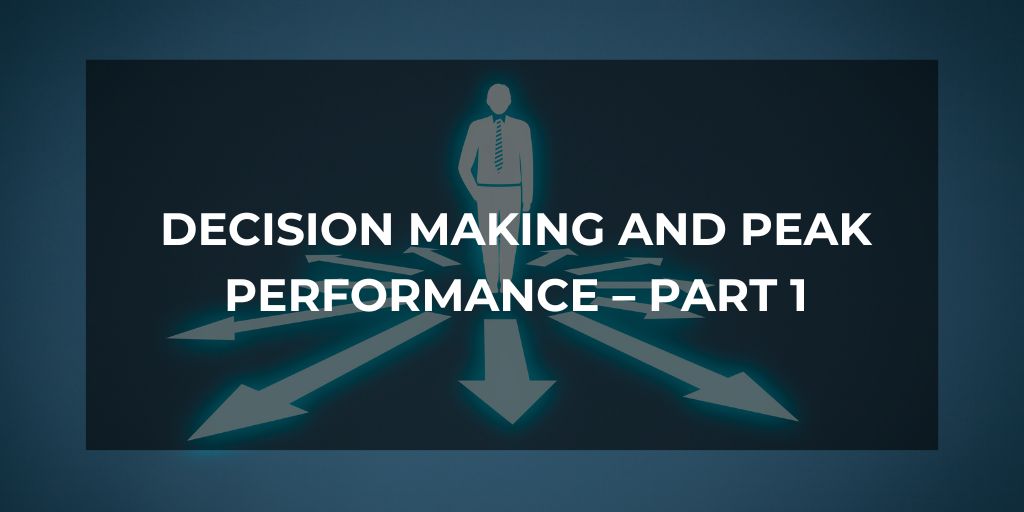Decision Making and Peak Performance – Part 1
One often overlooked aspect of peak performance is how you make decisions. Whenever you consciously make a decision that takes longer than an instant, you are NOT performing at your peak. In short, if you are thinking you are guaranteed to be underperforming.
This is why we practice. We know the more repetitions we have in doing something, the more likely it will become our way of doing it. This process is known as habit creation, and habits eliminate the need for thought.
Whenever we learn something new, we must mentally process multiple aspects of what we are trying to do and make decisions. As we get more repetitions, we gradually automate some elements that previously required our attention. Once this is done, we have fewer decisions to make, and we start to notice the improvements we are making.
Walking is a habit we all develop. When babies learn to walk, they are overwhelmed with thoughts/decisions and struggle to reach their feet. Once they reach their feet, they are usually shaky and unstable and have new thoughts/decisions to make. Eventually, walking becomes a habit, and most of us spend the rest of our lives not ever having to make another decision about how to walk and not fall on our face.
This applies not just to physical habits like walking but also to the way we process things in our minds. Unfortunately, most people never spend the time and effort learning how to automate their thinking/decision-making.
We foolishly assume that thinking is like our heartbeat, occurring naturally. No one would make one shot in basketball and think they would keep making all of their shots. But people regularly learn a new way of thinking, do it once, fail to practice that new way of thinking, and assume that it is now a part of them.
The highest-level performers I work with practice using the new thinking methods I teach them until they become a habit. Then and only then do they begin to perform near their peak.
The weakest link of a chain determines its strength. The body ALWAYS follows the mind, so if you have the body of a trained professional athlete and an untrained mind, the ceiling of what you will accomplish is very low.
The choice is yours: do what most athletes do, prioritize working on your body over your mind, and end up limited in what you can accomplish. Or strive to be great and spend as much or more time working on what leads the body… Your mind!


